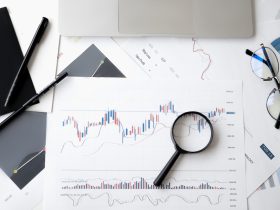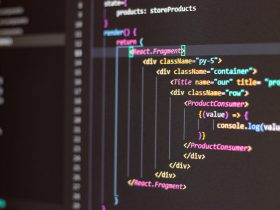Data science has emerged as a transformative field in recent years, revolutionizing industries and driving innovation across various sectors. As we gear up for 2021 and beyond, it is crucial to keep an eye on emerging trends that will shape the future of data science. From the rise of artificial intelligence (AI) to the increasing emphasis on ethics and privacy, here are some key trends to watch out for in data science.
1. Artificial Intelligence and Machine Learning:
Artificial Intelligence and Machine Learning (ML) have become integral parts of data science. The increasing availability of data and computational power has propelled the development of advanced AI models that can automate complex tasks, make predictions, and optimize decision-making processes. In 2021, we can expect AI and ML to continue gaining prominence, with more focus on deep learning algorithms, reinforcement learning, and natural language processing.
2. Augmented Analytics:
Augmented analytics combines AI, ML, and natural language processing to automate data preparation, analysis, and visualization. This trend aims to democratize data by making it accessible to non-technical users while freeing data scientists to focus on more complex problems. As organizations strive to become data-driven, augmented analytics will play a crucial role in enabling faster and self-service analytics, ultimately empowering business users to make data-informed decisions.
3. Ethical Data Science:
In recent years, there has been a growing concern about the ethical implications of data science practices. As data becomes increasingly personal and sensitive, organizations must be mindful of potential biases, discrimination, and privacy violations. In 2021 and beyond, expect a heightened focus on ethical data science, with increased measures to ensure fairness in algorithms, transparency in decision-making, and protection of user privacy.
4. Edge Computing:
Edge computing refers to performing data processing and analytics at the edge of the network, closer to the data source, rather than centrally in the cloud. With the proliferation of Internet of Things (IoT) devices and the need for real-time decision-making, edge computing is gaining traction. Data scientists will need to adapt to this trend by developing models and strategies to handle edge devices’ limited computational power and bandwidth constraints effectively.
5. Automated Machine Learning (AutoML):
Automated Machine Learning (AutoML) is a rapidly evolving field that aims to automate the end-to-end process of building ML models. AutoML tools enable data scientists to automate tasks such as feature engineering, model selection, and hyperparameter tuning. This trend will continue to gain momentum in 2021, with organizations recognizing the value of streamlining the time-consuming and resource-intensive ML model development process.
6. Bias Detection and Mitigation:
As algorithms increasingly influence decision-making in critical areas such as hiring, lending, and criminal justice, ensuring fairness and reducing bias in AI models becomes crucial. In 2021, expect significant strides in bias detection and mitigation techniques, with increased research and development in algorithmic fairness, explainability, and interpretability. Data scientists will play a pivotal role in ensuring that AI systems are accountable, transparent, and unbiased.
7. Privacy-Preserving Techniques:
With heightened regulations such as the General Data Protection Regulation (GDPR), organizations are under pressure to protect sensitive user data. Privacy-preserving techniques, such as differential privacy, homomorphic encryption, and federated learning, are gaining prominence. Data scientists will need to incorporate these techniques into their workflows to ensure data privacy while maintaining the integrity and utility of the data.
Conclusion
The field of data science is constantly evolving, and keeping up with emerging trends is crucial for both data scientists and organizations. From the increasing influence of AI and ML to the heightened emphasis on ethical practices and privacy, the data science landscape in 2021 and beyond promises exciting possibilities and challenges. By staying ahead of these trends, data scientists can harness the power of data to drive meaningful insights and unlock new opportunities for innovation.



















Leave a Reply